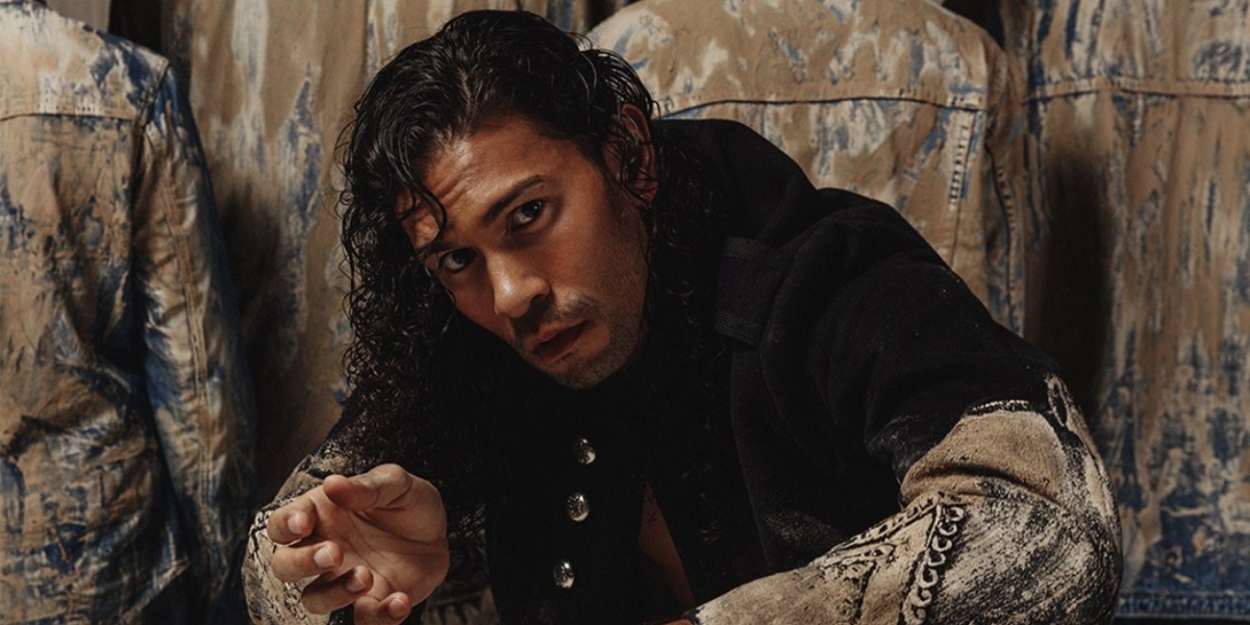
Reviewed by Ray Smith, Saturday 11th March 2023.
For Aboriginal and Torres Strait Islander readers: this review contains the name of a person who has died.
There was an expectant air in the foyer of the Odeon Theatre as we all gathered to witness Tracker, a piece of First Nations history and storytelling, featuring, for the first time in the Australian Dance Theatre's history, an all indigenous cast and crew. It is presented by the ADT in association with Ilbijerri Theatre Company
This is a deeply personal story for Artistic Director Daniel Riley, as it revolves around his own Great-Great Uncle Alec 'Tracker' Riley who, for over 40 years, worked with NSW police using his extraordinary skills to solve mysteries and bring criminals to justice. He was held in very high esteem and rose to the rank of police sergeant and, on his retirement, was presented with a watch, but no pension.
As we all entered the performance space to find our allocated seats, my guest and I found ourselves high in the tiered rows of seats, virtually in front of the centre of the stage. It was a perfect vantage point. The murmur of the audience as they settled themselves into their chairs was accompanied by the sound of a pedal steel guitar being gently played live by composer and musician, Gary Watling, who sat in semi darkness at the back of the stage, present but anonymous. Watling's soft portamento playing was joined by the sound of whispering and clap sticks as composer James Henry's soundscape heralded the beginning of this tale.
Enter Ari Maza Long, a graduate of the National Institute of Dramatic Art, playing the part of a young Aboriginal man called Archie, with a map in one hand and a torch in the other, apparently lost in the wilderness of his own cultural country, questioning himself and lamenting his lack of an intuitive knowledge of his surroundings. That the character represents, at this stage, Daniel Riley himself seems obvious but surely he could represent many contemporary First Nations people, equally lost and disenfranchised in the forced colonisation of their own country. That the character bears the same name as Riley's own son completes the unbroken thread that runs through this historic drama, and brings us unambiguously into the present day.
Three dancers, Tyrel Dulvarie, Rika Hamaguchi, and Kaine Sultan-Babij, flick and shimmer around the young man, visible to us but not to him, placing clues in his path to assist him or even physically moving him to the place he needs to be. He remains unaware that he is being directed, informed, assisted and taught by an invisible nurturing force that surrounds him and guides him in his search, his ongoing narrative undisturbed by Riley's flawless choreography and the fluid, liquid movements of the dancers.
Suddenly, Archie is gone, as Maza Long flicks into the character of Alec 'Tracker' Riley, searching, studying, reading subtle signs all around him, seeking the truth as our own vision is blurred by translucent, shimmering curtains drawn deftly and almost silently around the circular space, forcing us to try to look deeper, to try to penetrate the barrier, to see through the veil and, like the Tracker, find the truth.
The sheer power of the work was leaving me breathless and anxious, Henry's soundscape at times pulsing and stabbing, while Watling's pedal steel wailed like generations of weeping children, as the Tracker finds the body of a young woman, follows a trail of ants to find a hoard of stolen sugar, searches for a lost young boy. Then the voice of a real young boy cut through the music and the tenuous threads that were holding my emotions in check, and it was there, I am embarrassed to report, I simply had to leave the room before I broke down completely.
My guest and dear friend helped me to exit as quietly as possible, and the wonderful Adelaide Festival staff gently escorted me upstairs to the Crying Room so that I could see the conclusion of this extraordinarily emotive work and allow it to consume me without disturbing others. I learned later that the voice that had triggered my response was that of the real Archie Riley, Daniel Riley's son.
The marriage of dance and an almost narrative theatre is an extraordinarily difficult and courageous thing to attempt and would be impossible without the expertise of the entire cast and crew and the incredible directing work of both Daniel Riley and the utterly brilliant Rachael Maza AM. I have been attending and reviewing performances by the Australian Dance Theatre since the Leigh Warren days, but I have never witnessed anything as powerful as this before.
I had been warned by theatre-going friends in Sydney, where the work premiered, and in Perth, where its second season was held, that this particular work was likely to bring up some old memories for me, and to stir emotions that I thought I had held tightly in check, and they were right.
I was able to talk to Daniel, Rachael, and Ari after the show, and to offer my apologies to them for my abrupt and untimely exit, only to find myself embraced and surrounded by love and understanding from everyone, such is the nature of this beautiful people. In an extraordinary display of empathy and generosity Daniel Riley apologised to me, casting himself as the cause of my emotional response, and offered me a ticket to any subsequent performance so that I could experience the whole work, but this time forearmed.
Please buy a ticket for yourself to experience this wonderful production but, unlike me, prepare yourself for something that will reach the very depths of your soul.
Photography, Pedro Greig.
Reader Reviews

Videos
